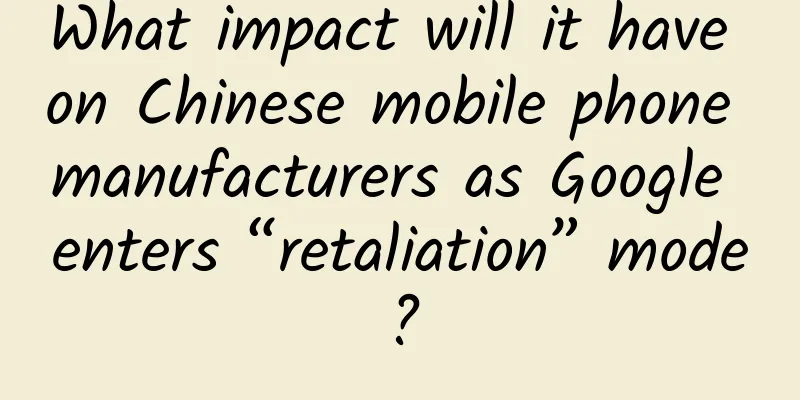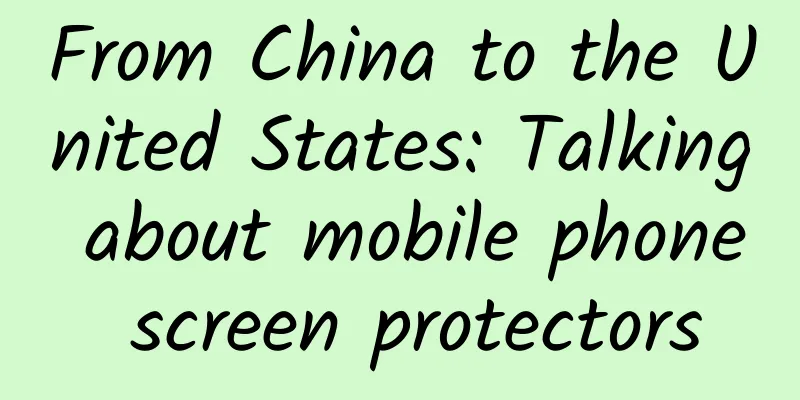What impact will it have on Chinese mobile phone manufacturers as Google enters “retaliation” mode?

|
Introduction Since the beginning of this year, mobile phone manufacturers such as Huawei, OPPO, vivo, and Xiaomi have all actively expanded into the European market, among which Huawei has the deepest foundation in Europe. After receiving the fine from the European Commission, Google finally started charging while appealing. According to Google's official blog, starting from October 29, 2018, Android phones and tablets launched in the European Economic Area (EEA, including 31 countries) will gradually adopt a new charging agreement. It is reported that the licensing fee for a device can be as high as US$40. There are two key points in the new agreement. First, if you use Google Search and Chrome browser to download Google's various application suites, each device will need to pay a licensing fee. However, if manufacturers are willing to pre-install Google Search and Chrome browser (not exclusive), Google will provide a new business agreement, which means that manufacturers who pre-install will still benefit. Second, the Android system will remain free and open source. In response to the EU's penalties, Google once said it might charge for the Android system, but now it seems that Google is not willing to affect the ecosystem of the Android operating system by charging. Next, Google will spend several months coordinating new charging agreements with its partners. At present, it seems that the main ones affected are mobile phone and tablet manufacturers with European business, while the Chinese market and other regional markets are not affected. On October 29, Liu Xingliang, director of the DCCI Internet Research Institute, told a reporter from 21st Century Business Herald: "For domestic Android users, there is absolutely no impact. Because the Android system is still free, Google charges for application suites (Play Store, search, maps, email, etc.). Chinese users don't use any of these." Google’s “strike back” In July this year, Google received a sky-high fine of 4.3 billion euros (about 5 billion US dollars) from the European Union. The EU believes that Google has engaged in monopolistic behavior based on the Android system, such as paying manufacturers and operators to make Google Search the exclusive search tool on products, Google requiring manufacturers to pre-install Google Search and Chrome browser on Android devices, and Google not allowing manufacturers to sell mobile devices equipped with Android branch systems developed by competitors. Google Search Chrome browser is an important source of profit for Google, and also provides financial support for the free open source of Android and other operating systems. According to the requirements of the European Union, Google cannot require mobile phone manufacturers to pre-install software. In order to make up for the revenue, Google decided to charge software licensing fees in the European Economic Area. In terms of specific charging measures, according to The Verge, charges in EU countries will be divided into three levels, with the highest fees distributed in the UK, Sweden, Germany, Norway and the Netherlands. According to the pricing document, in these countries, devices with a pixel density higher than 500ppi will need to pay a fee of $40 to license Google's application suite. Devices with 400 to 500ppi will pay a fee of $20, while devices below 400ppi will only pay $10. In some countries and regions, for low-end mobile phones, the fee per device can be as low as $2.50, and the new fee depends on the country and device type. So, what impact does charging have on Google's ecosystem? The Android ecosystem can be simply divided into the Android operating system, Google services, and Google Play. Through Google Play, Google integrates the application ecosystem on Android, including search products such as Google Chrome and YouTube. Of course, device manufacturers can also choose not to use Google's application services, but the number of users of Youtube, Gmail, and Chrome is so large that it is difficult to avoid it completely. However, with the new charging system, the terms of service will change, and the user system relationship will also be updated accordingly. Perhaps paying merchants can get more services, and Google's service methods will also be differentiated. On the other hand, Google will face more competitors at the service and application level. Although it cannot compete with the Android system, other service providers can set up their own application stores, such as China. In terms of upper-level applications, email and browsers have alternatives, which will introduce some new competition. Mobile phone manufacturers wait and see the impact In addition to some impact on Google's ecosystem, many comments believe that mobile phone manufacturers will suffer from price increases. However, industry insiders said that mobile phone manufacturers may not actually need to bear this cost, because Google also provides separate agreements to pay part or all of the licensing fees for companies that choose to install Chrome browser and Google Search on their devices. Assuming that the average licensing fee for an Android device is $20, Google needs 250 million devices to recover the $5 billion fine. Judging from the data from the European mobile phone market, Samsung, Apple and Huawei have occupied the top three positions in sales, and most mobile phone manufacturers are currently in a state of waiting and watching. According to the European smartphone market shipment rankings for the first quarter of 2018 released by research firm Canalys, Samsung shipped 15.2 million units, with a market share of 33.1%, ranking first, but its shipments fell by 15.4% year-on-year; Apple ranked second, with shipments of 10.2 million units, a year-on-year decrease of 5.4%, and a market share of 22%; Huawei ranked third, with shipments of 7.4 million units, a year-on-year increase of 38.6%, and its market share increased to 16.1%. Xiaomi and Nokia ranked fourth and fifth, with market shares of 5.3% and 3.5% respectively. Google's charging terms are currently only implemented in the European Economic Area and have little impact on Chinese mobile phone companies. Li Rui, CEO of Noway Consulting, told the 21st Century Business Herald reporter on October 29: "This is a beginning and has no impact on domestic brands and the Chinese market. In fact, it is difficult for Google to restrict domestic brands. It can only restrict them through the market, but I don't think Google can restrict products activated in China. This authorization price is normal. In fact, what mobile phones should be most vigilant about is the increase in component costs caused by politics and macroeconomics." From the perspective of the proportion of mobile phone software costs, Li Rui said: "The cost at the OS/UI level is difficult to say, as it depends on the brand's related R&D investment and is difficult to convert to each mobile phone. At the app level, manufacturers have investments and income at the same time. The income from the implantation of third-party apps in a mobile phone of a big brand is about 100-300 yuan." From this point of view, for high-end mobile phones, the licensing fee of US$40, less than 300 yuan, is actually not high. Low-end mobile phones may be affected, but as mentioned earlier, Google will also classify mobile phone charges. Since the beginning of this year, mobile phone manufacturers such as Huawei, OPPO, vivo, and Xiaomi have all actively expanded into the European market. Huawei has the deepest foundation in Europe. "Android charges will have a certain impact on product pricing. However, for Huawei, which has a relatively high pricing and is in a rising period overseas, the impact will not be significant. The licensing fee is nothing compared to the growing overseas marketing costs." Li Rui said. |
<<: Forbes: Producing iPhones in the U.S. is challenging but not impossible
>>: The romantic rise and fall of WeChat public accounts
Recommend
Are you using the 6 types of keywords that you must promote when doing marketing?
There are 6 common types of keywords : brand word...
WeChat announces eight hardware industry solutions for the first time
On August 25, at the final of the WeChat Hardware...
Complete review: How to write an attractive information flow idea?
Recently, I did information flow promotion for a ...
Huawei's new processor Kirin 650 is fully exposed: the first model will be this one!
After releasing P9, Huawei has another new produc...
In response to the cross-provincial transmission chain of Omicron, here are the 6 questions you care about!
At the end of the year and the beginning of the n...
Kiryu Kazuma's gorgeous farewell "Yakuza 6" review
He is full of pride and refuses to admit defeat. ...
Haval's sales have dropped sharply, while the new brand WEY started strong but ended weak. Where is the turning point for Great Wall Motors?
Great Wall Motors' recent sales are not optim...
4 steps to create a National Day marketing campaign plan!
I have read many books on training marketing dire...
[Latest opening] The latest fluorescent cloud new project, receive unlimited coupons, daily income of 300+
[Latest opening] The latest fluorescent cloud new...
How much does it cost to customize a gaming device applet in Xingtai?
The factors affecting the quotation of Xingtai ga...
There are 1.2 million different molecules, and only one can control resistance!
Recently, researchers have achieved the goal of m...
Whose dopamine is activated? On World Environment Day, let’s protect the beautiful background of the earth together!
Every color on earth has its own unique charm. Th...
How to effectively regulate the frequent chaos in the short video industry?
Recently, four short dramas produced by Mi Meng&#...
A new way to place wedding photography video ads!
This article shares with you a case study of the ...
SEO order-taking platform, what is the order-taking process for SEO outsourcing services?
Many people who are good at SEO like to provide S...









